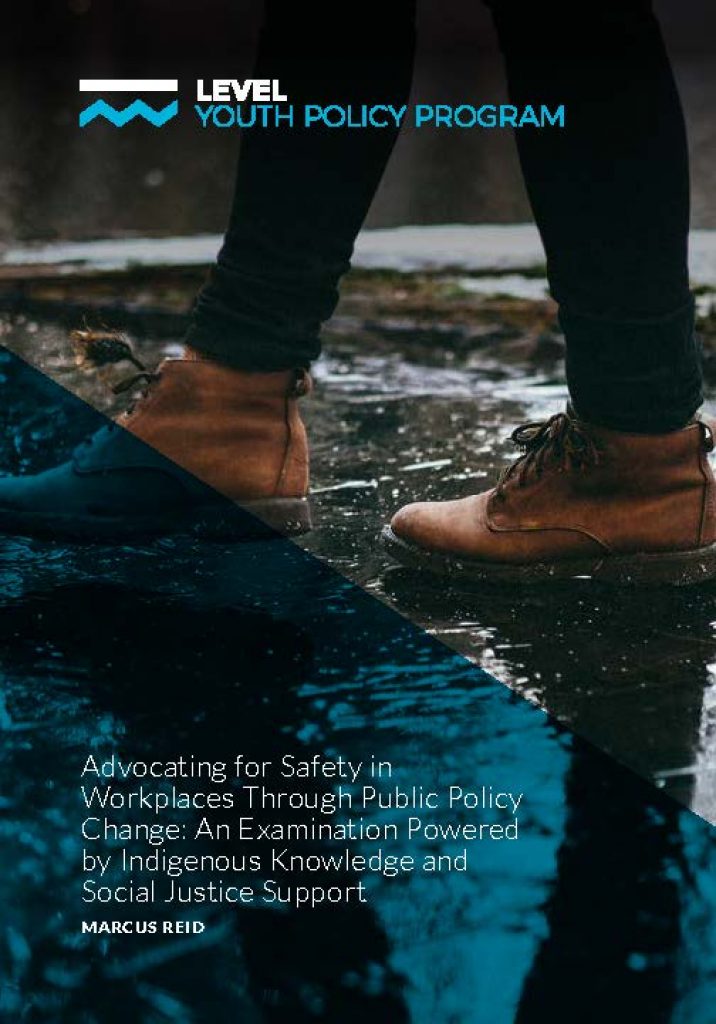Vision: Developing policy to create, maintain, and foster safer environments for Indigenous people, racialized Newcomers, persons with disabilities, those impoverished, and LGBTQ2S+ (two-spirit), people for all-gendered communities. The purpose of staying true to this vision is to include everyone impacted by colonial suppressive systems, and further pay attention to those intersecting between various marginalized identity markers.
To ground this policy with an Indigenous knowledge and way of being, I’d like to define safety in terms of emotional, physical, mental, and spiritual safety. This also requires a deeper acknowledgement that safety cannot be so easily acquired under colonial systems like white supremacy, patriarchy, and more (Personal Communications, Nathalie Lorenzo). For those beneficiaries of hierarchy imposed structures, it needs to be understood that unearned privilege is at the expense of oppressed people’s livelihood. For example, the settler-stolen Indigenous land that we are situated on continues to effect and affect all aspects of Indigenous people’s safety. This will remain an undue hardship for Indigenous peoples until there is reform in the hierarchies imposed on these lands. Acquiring reform is not for the purpose of repositioning Indigenous people at the top of a hierarchy, but completely dismantling these oppressive systems to centralize the true sovereign people’s culture, values, and laws into the life of those residing on these lands. In contrast to Indigenous erasure, to centralize Indigenous people’s way of life, values would emerge that are beneficial to contemporary society. Traditional values of many Indigenous peoples would foster safety for everyone, like respect for peoples of other nations, LGBTQ2S+ (two-spirit), empowering women and all genders, caring for Elders and those with disabilities. Grounding policy analysis with Indigenous knowledge demonstrates the importance of widening the scope of anti-oppression to all inflicted by a system that is not working for everyone.
Further, to build this policy with a comprehensive and intersectional lens, I’d like to acknowledge that European colonialism has also detrimentally impacted the aforementioned oppressed groups who have settled in Canada, or are situated in Canada by force of colonialism. Which is why this policy ask has a holistic range of groups to consider, centralize, and stand with in solidarity together.
With all these different communities, it’s important to recognize the magnitude of hardship when individuals intersect between marginalized communities – for instance a Muslim woman of colour navigating different layers of oppression when immigrating to Canada. How does this individual come to terms with their safety? These are questions and instances that the policy ask aims to explore solutions for.
Strategy to increase safety mandated through three main policy recommendations:
- Examine and Update the Designated Groups in the Federal Employment Equity Act.
The Federal Employment Equity Act designates women, Aboriginal people, visible minorities, and persons with disabilities as groups who face inequity in employment. This policy ask observes who is excluded from this designation and what impacts there are for marginalized groups without anti-oppression support. These observations are for the purpose of recommending a larger scope of employment discrimination, as well as recognizing oppression within workplaces. - Amend the Federal Employment Equity Act to Deepen External Anti-oppression Training.
This policy ask aims to lobby the Federal Minister of Labour to require outreach and training services in the Employment Equity Act. One recommendation is for an amendment to include and/or expand external anti-oppression training into employment equity policy. This would increase equity initiatives in federally regulated employers for the purpose of fostering safety within workplaces. - Stipulate Conditions to Federal Government Funding for Continual and Tangible Support for Designated Employee Equity Groups.
Lastly, this policy ask utilizes the case study of attaching additional requirements to the Summer Jobs Canada program to prohibit discriminatory organizations from receiving funding. With successful methods of stipulating funding conditions, more options are recommended for what other anti-oppression initiatives can be implemented by furthering conditions to receive funding. First Nations and corporations should already align their values with anti-oppression initiatives and if they are not, their openness to change is integral in implementing new public policy. In the development of these anti-oppression initiatives, the purpose/core values of this youth program must continue to be central for the marginalized groups to be present in policy making decisions.

